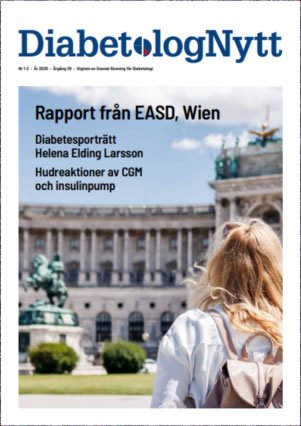Epidemiology
NEW YORK (Reuters Health) – Diabetics on metformin who develop solid tumors tend to fare better than non-diabetics with incident cancer, a new study shows.
But the opposite is true for patients treated with sulfonylureas or insulin, Dr. Craig J. Currie of Cardiff University in the UK and colleagues report in the February issue of Diabetes Care.
Research has consistently shown that cancer risk and cancer mortality is lower in patients with type 2 diabetes who take metformin compared with those using other glucose-lowering medications, the researchers write.
Metformin has become the mainstay of treatment for type 2 diabetics, and doctors are considering its use in non-diabetic patients as an adjunctive cancer therapy as well.
To investigate the drug’s effects on cancer prognosis, Dr. Currie’s team used data on more than 112,000 patients at some 350 primary care practices in the UK. Of those patients, 7.5% had type 2 diabetes; all had developed a first malignancy after January 1990 and were followed through December 2009.
Overall median and mean survival were 6.8 and 9.3 years, respectively. Diabetic patients had a significantly higher unadjusted mortality risk compared to non-diabetic individuals (hazard ratio 1.24), which was reduced but remained significant (HR 1.10) after adjusting for smoking status, baseline age, sex, Charlson index, and year of cancer diagnosis.
Cox adjusted mortality was significantly higher for diabetic patients with breast or prostate cancer (HR 1.32 and HR 1.19, respectively), compared to non-diabetic patients, while diabetes was actually tied to better survival in patients with lung cancer (HR 0.84).
Overall mortality was 15% lower in patients on metformin monotherapy for at least 90 days before being diagnosed with cancer compared to patients who did not have diabetes, the researchers found.
Sulfonylurea monotherapy and insulin monotherapy were each linked to a 13% increase in mortality compared to non-diabetic individuals, while combination therapies had no significant influence on mortality.
”These findings add to the evidence that metformin may be of some benefit in the prevention and/or treatment of some, but potentially not all, types of cancer,” Dr. Currie and his team write.
”The most striking observation was that diabetic patients treated with metformin had lower mortality than that of the background population,” they add, ”raising the possibility that metformin might come to play a wider role in cancer prevention and therapy.”
The study was supported by the European Foundation for the Study of Diabetes.
Diabetes Care 35;299-304, 2012.
Nyhetsinfo
www red DiabetologNytt

